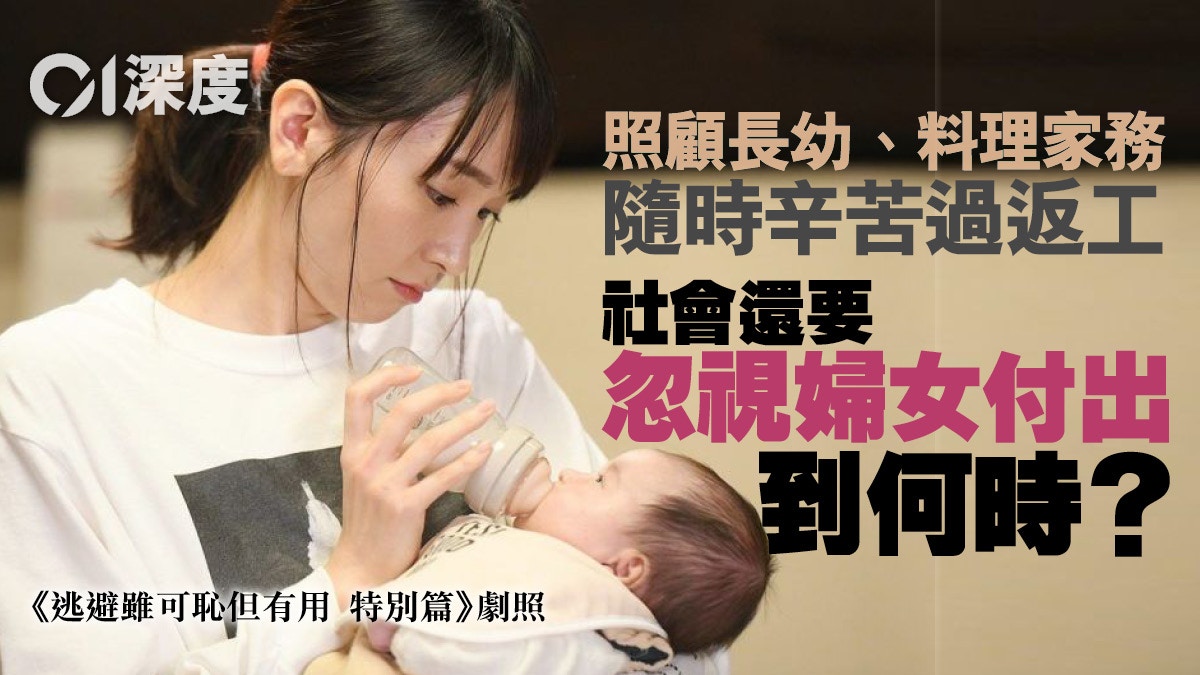weekly
Written by: Cheng Xue
2021-03-08 20:15
The last update date: 2021-03-08 20:15
It was March 8th International Working Women’s Day. Yesterday (March 7), the Hong Kong Women’s Labor Association held a press conference and pointed out that under the spread of the epidemic, Hong Kong’s care and work were exhausted and women’s jobs were scattered and lacking protection.
A careful study of this year’s government budget shows that in terms of elderly services and rehabilitation services, only a drop in the number of service places and residential places will be increased. There is no institutional reform. The pressure of caring for the handicapped at the grass-roots level is shifted to families and women in a disguised form. Obviously the government is in The lack of welfare policy.
To improve the situation of women as "caregivers", it not only requires the public to understand that the role of "caregivers" is not a natural duty of women, but a gender label given by society; at the same time, it also requires the government to affirm the contribution of grassroots women to the care recipient. Labor is to confirm the labor value of caregivers from the social system, and provide caregivers with financial, mental health and trusteeship support.
In the 2021-2022 Budget released by Financial Secretary Chen Maobo earlier (February 24), the government proposed to allocate 150 million yuan to provide an additional 1,500 subsidized home care services for the elderly this year. The number of places, combined with information from the Social Welfare Department, provides a total of 11,865 service places to help frail elderly people with moderate or severe physical impairment to stay at home in the community for the elderly.
According to the 2016 Population By-census Thematic Report: Elderly, 91.9% of the elderly belonged to family households, which means that in 2016, there were about 1.068 million elderly living at home.
No matter how calculated, the 11,865 home care service places are just a drop in the bucket.
With insufficient support, the pressure of taking care of the elderly at home is naturally passed on to the family.
According to the “Study on the Physical and Mental Status and Service Needs of Elderly Carers” released by the Hong Kong Council of Social Service in 2018, among the 1,115 questionnaires collected, 80% of the “carers” were women, mainly the spouses of the carers Or children.
While caring for the elderly, due to the long-term shortage of childcare services in Hong Kong, the main task of taking care of the children rests with women.
Statistics from the Census and Statistics Department show that the labor force participation of married women aged 20-39 has fallen over the past ten years. One of the main reasons for the inability to participate in economic activities is "housekeeping."
Statistics from the Census and Statistics Department show that the labor force participation of married women aged 20-39 has fallen over the past ten years. One of the major reasons for the inability to participate in economic activities is "housekeeping."
(Photo from "Jin Zhiying Born in 1982")
The new crown pneumonia epidemic has lasted for a year, children have been suspended from school, community support services have been closed, and the amount of housework and care work undertaken by caregivers has increased exponentially.
If the family faces financial difficulties at the same time, such as women who have to reduce their working hours to take care of their children, the elderly or the disabled, or if a family member is facing underemployment or even unemployment, women as "caregivers" have to bear financial, emotional and family responsibilities. The pressure exerted by many aspects such as relationship.
A survey by the Hong Kong Women’s Labor Association found that more than 90% of the women interviewed reported that the epidemic has aggravated their mental and emotional stress.
Since last year, there have been many tragedies in Hong Kong. For example, in September last year, a mother in Kwai Chung Village strangled a mentally handicapped child; in November, a 51-year-old depressed mother and a pair of children in Sham Tseng Long Chuiyuan laid their bodies at home; and in December, a housewife in Wan Chai attempted to strangle a 7-year-old. The son hanged himself to death after unsuccessful...All the tragedies have shown that Hong Kong society is far from supporting caregivers. It is not difficult to imagine that under the impact of the epidemic, they have been under pressure and have nowhere to stay.
Why are most "caregivers" "women"?
Why do "women" seem to be born with some kind of "responsibility"?
Feminist pioneer Simon Beauvais pointed out in his book "Second Sex" that a woman is not born a woman, but "becomes a woman."
This idea is that the image of a "woman" is a set of standards constructed by social culture, the most typical of which is the "good wife and loving mother."
The female image reflected by this word is not "who she is", but she is "someone's virtuous wife, some man's virtuous mother", so a woman is in the subordinate position of "someone" and is no longer a freedom An autonomous subject, but an object relative to men.
Although the theory is abstract, there are examples everywhere in reality.
Take "caregivers" as an example. The society takes it for granted that women should take on the role of "caregivers," as if it is a natural responsibility of women to take care of household chores and take care of their children and the elderly.
But is this division of functions a natural result of the different physiological differences between men and women, or is society's value exploitation of women's labor?
The aforementioned "Study on the Physical and Mental Status and Service Needs of Elderly Carers" pointed out that 58% of "carers" provide more than 40 hours of care per week, which is equivalent to the weekly working hours of a full-time employee. Labor is regarded as a due obligation without any compensation.
It can be seen that the answer can only be the latter.
The society should affirm the contribution of taking care of women’s families to social stability.
(Profile picture)
How to improve the difficult situation of "caregiver" women?
It not only requires the public to understand from the understanding that the role of "caregiver" is not a natural duty of women, but a gender label given by society. At the same time, it also requires the government to affirm the labor of grassroots women for the care recipient and confirm the care from the social system. The labor value of the caregiver provides financial, mental health and trusteeship support for the caregiver.
For example, the Women’s Labor Association put forward the "Carer Allowance" to help women who are unable to take care of their work due to taking care of their families reduce financial pressure, and at the same time affirm the contribution of caring for women’s families to social stability.
In addition, the government has the responsibility to optimize community services for people with intellectual disabilities, the elderly, children and their caregivers.
For example, countries such as Europe and the United States have "breathing services" to support caregivers. When carers feel overwhelmed, they can contact social welfare agencies to arrange for social workers to come to help care for the caregivers. Caregivers can get a few hours of "breathing time". Relieve stress.
For many years, Hong Kong's public services have adhered to stereotypes and lacked humane management. This is due to the government's policy thinking of "small government, big market" and stingy investment in public welfare policies.
It must be understood that "equality between men and women" should not be reduced to just a slogan. It is necessary to see the pressure and exploitation of grassroots women, especially grassroots "caregivers", and provide assistance from the construction of the system, in order to truly promote society Progress and fairness and justice.
Population ageing, gender controversy, women’s health, in-depth report on working women on International Women’s Day












/cloudfront-eu-central-1.images.arcpublishing.com/prisa/KMEYMJKESBAZBE4MRBAM4TGHIQ.jpg)


